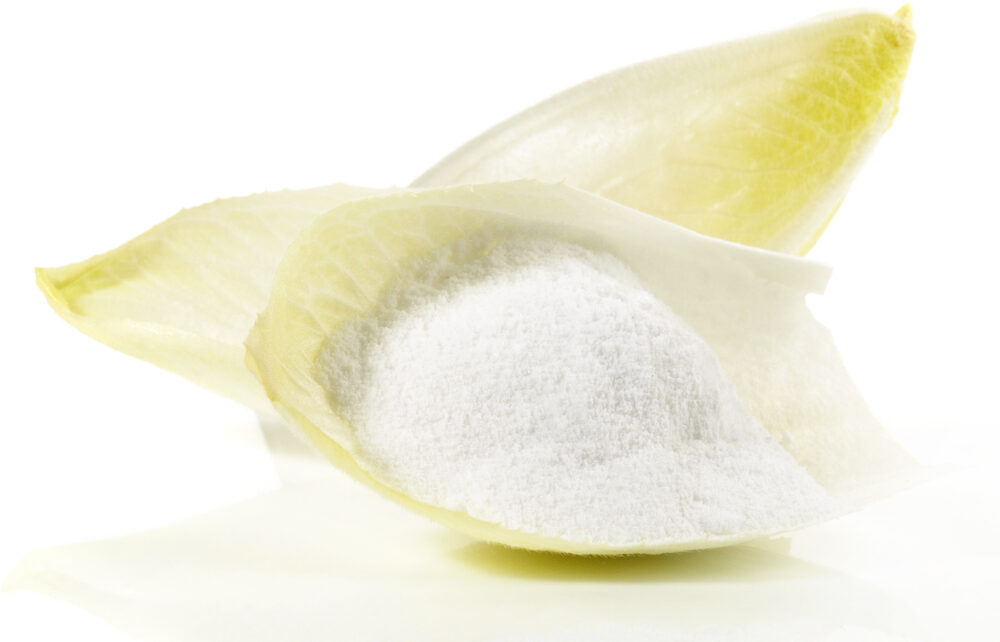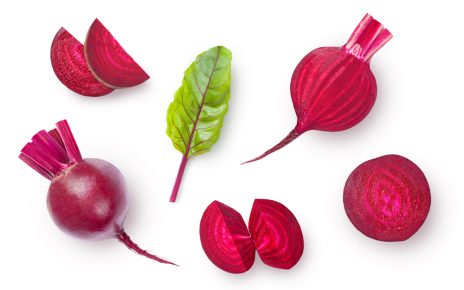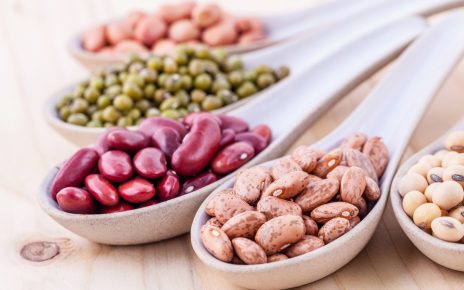If you’re following a ketogenic diet, you already know that the key to success lies in keeping your carb intake low while consuming healthy fats and moderate protein. This means that many foods are off-limits, including most types of sugar and carbohydrates. But what about inulin? Is this popular prebiotic fiber keto-friendly?
In this article, we’ll take a closer look at the ketogenic diet and how it works, as well as explore what inulin is and how it may fit into a keto lifestyle. We’ll also weigh the pros and cons of using inulin on a keto diet so that you can make an informed decision about whether or not to include it in your meal plan. So, if you’re curious about whether or not inulin is keto-friendly, keep reading!
Understanding the Ketogenic Diet
You’re probably wondering how the ketogenic diet works and what it entails. Well, to put it simply, it’s a low-carb, high-fat diet that puts your body in a state of ketosis. There are many misconceptions about keto such as it being too restrictive or unhealthy. However, studies have shown that when done properly, the ketogenic lifestyle can offer numerous benefits for weight loss, diabetes management, and overall health.
One of the biggest benefits of the ketogenic diet is its ability to promote weight loss. When you reduce your carbohydrate intake and increase healthy fats, your body starts burning fat instead of glucose for energy. This leads to rapid weight loss and a decrease in appetite due to increased satiety from consuming healthy fats.
The ketogenic diet has also been shown to improve blood sugar control and insulin sensitivity in people with type 2 diabetes. By reducing carb intake and focusing on healthy fats, you can lower your blood sugar levels naturally without relying on medication.
In conclusion (just kidding!), the ketogenic lifestyle can be incredibly beneficial for those looking to lose weight or manage their blood sugar levels. It may seem daunting at first but with proper guidance and education on what foods are keto-friendly, anyone can successfully follow this way of eating for long-term health benefits. So go ahead and give it a try – who knows? You may just end up loving the keto life!
What is Inulin?
If you’re wondering what inulin is, it’s a type of dietary fiber that can be found naturally in many foods. Some common sources include chicory root, Jerusalem artichoke, and garlic. In addition to promoting digestive health by supporting the growth of good gut bacteria, inulin has also been shown to potentially improve blood sugar control and lower cholesterol levels.
Definition
Inulin, a type of soluble fiber found in many plants, can be compared to the foundation of a house because it provides support and structure for gut health. In fact, incorporating inulin into your diet can bring about numerous benefits for your body. Firstly, it helps to feed the good bacteria in your gut, which aids in digestion and overall gut health. Secondly, it may help to improve calcium absorption, leading to stronger bones and teeth. Lastly, it has been shown to promote feelings of fullness and satiety, making it a good choice for those on a weight loss journey.
However, as with most things in life, there are also potential side effects associated with consuming too much inulin. These include bloating and gas due to its fermentation process in the gut. It is important to start with small amounts of inulin and gradually increase intake over time so that your body can adjust accordingly. Overall though, incorporating moderate amounts of this keto-friendly fiber into your diet can lead to improved gut health and numerous other benefits!
Sources
Looking for ways to incorporate more sources of soluble fiber into your keto diet? Look no further than foods like chicory root, Jerusalem artichokes, onions, and garlic! These are excellent sources of inulin, a type of prebiotic fiber that has numerous health benefits.
There are different types of inulin with varying degrees of sweetness and solubility. Some common forms include oligofructose, fructooligosaccharides (FOS), and high-performance inulin. In addition to being a great source of fiber, inulin also helps promote healthy gut bacteria and can improve digestive health. It has even been linked to reduced risk for heart disease and improved insulin sensitivity. So if you’re looking for a way to boost your fiber intake on the keto diet while enjoying some added health benefits, consider adding more inulin-rich foods like chicory root or FOS supplements to your meal plan!
Health Benefits
Adding more sources of soluble fiber to your diet can have a significant impact on improving your overall health and well-being. Inulin, a type of soluble fiber found in many plant-based foods, can provide numerous health benefits that are especially important for those following a keto diet. One major benefit of inulin is its positive effect on gut health. Inulin acts as a prebiotic, which means it feeds the beneficial bacteria in your gut, helping to maintain a healthy balance of microorganisms.
In addition to improving gut health, inulin has also been shown to aid in weight management. This is because adding more fiber to your diet can help you feel full and satisfied for longer periods of time, reducing the likelihood of overeating or snacking between meals. Studies have also found that consuming inulin may lead to decreased levels of hunger hormones such as ghrelin, further supporting its potential role in weight loss efforts. Overall, incorporating sources of inulin into your keto-friendly meal plan could offer substantial benefits for both your digestive system and weight management goals.
Inulin and the Keto Diet
When following a keto diet, it’s important to be mindful of the amount of inulin-containing foods you consume. Inulin is a type of dietary fiber that can be found in many plant-based foods such as chicory root, onions, and garlic. While inulin has many health benefits, including improved gut health and lower cholesterol levels, it can potentially kick you out of ketosis if consumed in large amounts.
If you’re considering taking an inulin supplement while on the keto diet, it’s important to carefully monitor your intake. The optimal dosage of inulin for someone on the keto diet will vary depending on factors such as age, weight, and activity level. It’s best to start with a small dose and gradually increase it over time until you reach your desired level.
While some people may be able to tolerate higher amounts of inulin without being kicked out of ketosis, others may need to avoid it altogether. If you notice any negative effects such as increased blood sugar or digestive discomfort after consuming foods high in inulin, it’s best to limit your intake or avoid them entirely.
In summary, while inulin has many health benefits and can be a great addition to a balanced diet outside of ketosis, those on the keto diet should exercise caution when consuming foods containing high levels of this fiber. If you do decide to incorporate an inulin supplement into your routine while on the keto diet, make sure to monitor your dosage carefully and listen to your body’s response.
Pros of Using Inulin on a Keto Diet
If you’re following a keto diet, you might be wondering if inulin is the right supplement for you. In our previous subtopic, we discussed how inulin can affect the keto diet and whether it’s compatible with this type of eating plan. Now, let’s take a closer look at some of the benefits of using inulin on a keto diet.
Firstly, one of the biggest advantages of taking inulin on a keto diet is that it can help improve your gut health. This soluble fiber acts as a prebiotic, which means that it feeds the good bacteria in your gut and helps them thrive. By promoting a healthy gut microbiome, inulin may reduce inflammation and improve digestion.
Secondly, another benefit of using inulin on a keto diet is that it can help regulate blood sugar levels. As we know, keeping blood sugar stable is crucial when following a low-carb eating plan like keto. Inulin has been shown to slow down the absorption of glucose into the bloodstream which may prevent spikes and crashes in blood sugar levels.
Lastly, incorporating inulin into your daily routine may also help increase feelings of fullness or satiety after meals. Since fiber takes longer for your body to digest than other nutrients like fat or protein, adding more high-fiber foods to your diet (like those containing inulin) may help keep you feeling fuller for longer periods.
When considering taking an inulin supplement on a keto diet, it’s important to note that everyone’s needs are different. The optimal dosage will depend on factors like age, weight, and overall health status. It’s always best to consult with your healthcare provider before starting any new supplements or making changes to your current regimen.
By incorporating an appropriate amount of dietary supplements like Inulin alongside other nutrient-rich foods while maintaining regular exercise routines will surely aid Keto dieters towards successful results!
Cons of Using Inulin on a Keto Diet
Unfortunately, incorporating too much inulin into your low-carb diet may lead to gastrointestinal issues such as bloating and gas. Inulin is a prebiotic fiber that feeds the good bacteria in your gut microbiome. However, when consumed in excess, it can cause discomfort and disrupt the balance of bacteria in your digestive system. This can result in unpleasant symptoms like diarrhea or constipation.
Another potential issue with using inulin on a keto diet is its impact on blood sugar levels. While it is considered a low-glycemic sweetener, meaning it doesn’t cause a rapid spike in blood sugar like regular sugar does, it still contains some carbohydrates that can add up if you consume too much of it. This could potentially kick you out of ketosis and make it harder for you to reach your weight loss goals.
It’s important to note that not everyone will experience negative side effects from consuming inulin on a keto diet. Some people may be able to tolerate higher amounts without any issues. However, if you do decide to incorporate this supplement into your low-carb lifestyle, it’s best to start with small amounts and gradually increase over time while monitoring how your body reacts.
In summary, while there are certainly benefits to using inulin on a keto diet such as improved digestion and increased satiety, there are also potential downsides such as gastrointestinal discomfort and an impact on blood sugar levels. It’s ultimately up to each individual to weigh the pros and cons and decide whether or not this supplement is right for them.
Advice for Incorporating Inulin into a Keto Diet
Like a chef adding a secret ingredient to their recipe, incorporating small amounts of inulin into your meals can help support gut health and aid in weight loss efforts while following a ketogenic diet. Here are some meal ideas to incorporate inulin into your keto diet:
- Sprinkle inulin powder on top of Greek yogurt or berries as a sweet, fiber-rich breakfast option.
- Add inulin to your morning coffee or tea for an extra boost of prebiotic fiber.
- Mix inulin powder into salad dressings or sauces for added creaminess and nutritional value.
- Use inulin as a flour substitute when baking keto-friendly desserts for a low-carb, high-fiber alternative.
When it comes to dosage recommendations, start with small amounts (around 5 grams per day) and gradually increase as tolerated. Be sure to drink plenty of water throughout the day to prevent any gastrointestinal discomfort. With these tips, incorporating inulin into your keto diet can be an easy and delicious way to support overall health and wellness.
Other Keto-Friendly Fiber Options
Incorporating fiber into a low-carb diet can be challenging, but there are plenty of tasty options available to keep things interesting. Some keto-friendly fiber options include chia seeds, flaxseeds, psyllium husk, and coconut flour. These foods are not only low in carbs but also high in fiber and other essential nutrients.
Chia seeds are an excellent source of omega-3 fatty acids and antioxidants. They can be added to smoothies or used as a topping for yogurt or oatmeal. Flaxseeds are also rich in omega-3s and lignans, which have been linked to improved heart health. Psyllium husk is a popular ingredient in keto baking because it creates a gel-like texture that helps bind ingredients together. Coconut flour is made from ground coconut meat and is gluten-free and low in carbs. While these options provide many benefits, it’s important to incorporate them slowly into your diet to avoid digestive issues such as bloating or constipation.
Summary of Key Points
Inulin, a type of soluble fiber found in many plants, is a keto-friendly ingredient that can help support gut health and aid in weight loss efforts. If you’re looking to incorporate inulin into your keto diet, there are a few tips to keep in mind. First, start with small amounts and gradually increase as your body adjusts. Too much inulin at once may cause digestive discomfort.
Another benefit of incorporating inulin into your keto diet is its ability to promote feelings of fullness and reduce appetite. This can be particularly helpful for those trying to lose weight on the ketogenic diet. In addition to its potential weight loss benefits, inulin has been shown to improve gut health by promoting the growth of beneficial bacteria in the gut. Overall, adding inulin-rich foods like chicory root or supplementing with an inulin powder can be a great way to support your keto lifestyle while improving your overall health and wellness.
Conclusion
So, is inulin keto friendly? After considering the pros and cons, it’s ultimately up to you to decide if incorporating inulin into your keto diet is worth it. However, before making that decision, make sure you understand the potential risks and benefits.
On one hand, inulin has been shown to have numerous health benefits such as improving gut health and aiding in weight loss. On the other hand, it can have negative effects on blood sugar levels and potentially kick you out of ketosis. It’s important to weigh these factors carefully and make an informed decision.
Ultimately, the choice is yours. Will you take a chance on this popular prebiotic or stick with a more traditional keto diet without any added supplements? Only time will tell if taking that leap of faith was worth it.



